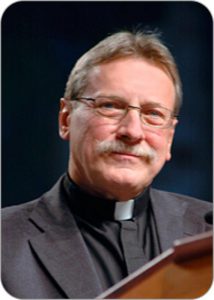
FROM THE PASTOR
Prisoners of Hope
When our lessons give us texts from little known Biblical writers, I like to take a moment and get to know them. This Sunday we will hear from the prophet Zechariah. Here is a little background on Zechariah whose depiction of the king who will come to us “humble and riding on a donkey,” has been seen by the Christian church as a reference to Jesus’ entry into Jerusalem riding on a donkey.
In 587 BCE, the Babylonians invaded Jerusalem. They destroyed the temple, deposed the Davidic ruler, and took many Jerusalemites into exile. Some seventy years later, descendants of the exiles began returning to their ancestral homeland. Hopes ran high for the restoration of Judean independence and the Davidic monarchy, as expressed in texts like Jeremiah 23:5–6 or Ezekiel 34:23–24. Those dreams never materialized. The foreign kings of Persia remained in charge for another 200 years, only to be replaced by Greek and then Roman rule.
The book of Zechariah engages these realities of post-exilic Jewish life. Chapters 1–8 reflect the decades immediately after the exiles’ return. Chapters 9–14 likely come from the next century, amidst growing frustration with Persian rule. A prayer recorded in Nehemiah, from the same time period, includes these words of lament: “Here we are, slaves to this day…. [The land’s] rich yield goes to the kings whom you have set over us because of our sins; they have power also over our bodies and over our livestock at their pleasure, and we are in great distress.” (Neh 9:36-37).
The words of comfort in Zechariah 9:9-12 thus emerge from long decades of yearning for restoration, as the experience of imperial subjugation became unbearable. They reflect the persistence of hope, even when its fulfillment seemed less and less likely. At a time of increasing expectation for an apocalyptic, otherworldly deliverance, these verses preserved the belief that a just, equitable political order could still be restored in this world. This text includes the startling, dynamic phrase which describes us as “Prisoners of Hope.”
Pastor Stephen P. Bouman

